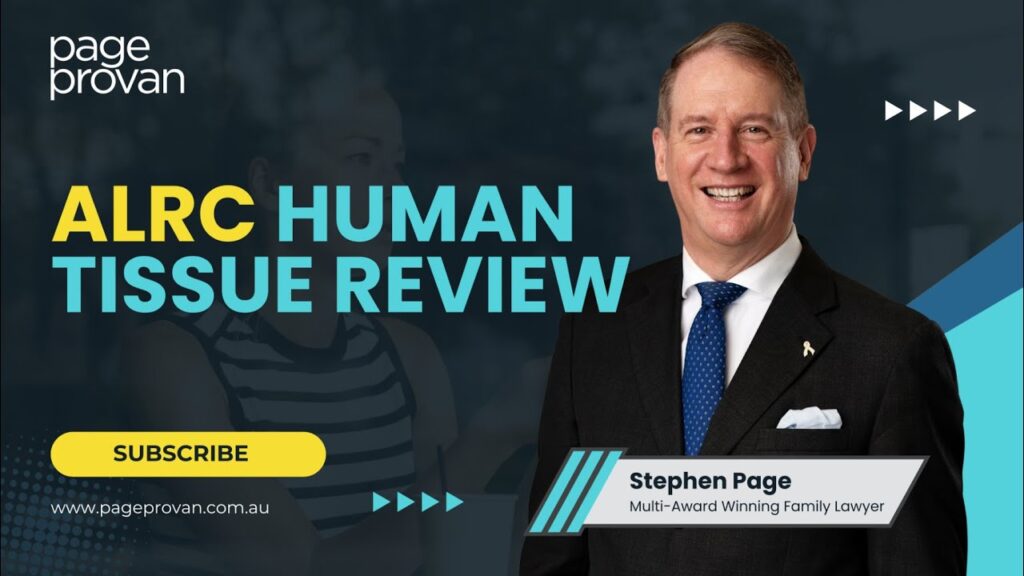Qld: Proposals for same-sex parenting reform
The issues paper released yesterday in Queensland, and open for comment until 18 September, about same sex parenting issues proposes a number of changes:
- The gender specific wording of the presumptions in the Status of Children Act treats children of lesbian couples differently from children of heterosexual de facto couples.
Unlike children of heterosexual couples, children conceived from a fertilisation
procedure or artificial insemination and born into a same-sex relationship have only
one legal parent (the birth mother), although the intention of the couple is to co-parent
the child. A child born into this situation may be disadvantaged throughout life and on
the death of their parents by having a legal connection to only one parent and one set
of extended family. - To achieve consistency with other jurisdictions and in line with the other
jurisdictions’ reviews, amendments to the Status of Children Act 1978 to extend the
current presumptions are required. Amendments to the Births, Deaths and Marriages
Registration Act 2003 enabling the birth mother’s partner to be recorded as a parent of
the child are also required. - In the ACT, the presumptions of parentage have been extended to include same-sex
couples who cohabit or where a fertilisation procedure has been used to conceive a
child. The amendments replace the gender specific wording in the relevant sections
with references to ‘parent’ and ‘spouse’ as defined in the Acts Interpretation Act
1954. - In Victoria, New South Wales, Western Australian, Northern Territory and the
Commonwealth (under the Family Law Act 1975), the amendments to the
presumptions have been limited to where there has been a fertilisation procedure used
to conceive the child. The amendments insert a new provision to recognise the nonbiological lesbian co-parent, where the birth mother has undergone the fertilisation
procedure with the consent of her partner. - The effect of the operation of these presumptions is that when the child’s birth is
registered, the non-biological lesbian co-parent is eligible to be registered as ‘parent’
alongside the birth mother’s registration as ‘mother’. The birth certificate issued
subsequent to this registration similarly identifies the ‘mother’ and ‘parent’.
Either approach will remove the situation whereby male partners of women who
become pregnant are presumed to be the parent of the child, but female partners are
not, as a result of part 3 of the Status of Children Act 1978,. - The presumptions in the Status of Children Act 1978 are presumptions as to legal
parentage, not genetic parentage, and any such amendments would be consistent both
with the current framework and objectives of the Act to provide for legal certainty for
children. Also the amendments will not detract from the uniformity sought in relation
to the presumptions of paternity in circumstances of cohabitation or artificial
conception. The amendments will not affect the parental responsibilities of fathers in
circumstances where an opposite sex couple separate after having children and the
woman commences a later relationship with another woman. - Queensland reform in this area will adopt the approach of the majority of Australian
jurisdictions who have opted for the insertion of a specific provision relating to where
artificial insemination and IVF have been used to conceive the child. This proposal
will provide legal recognition of the parental status of a non-biological parent who has
planned with her partner to have and raise a child together as a family. The legal
recognition of the family structures of children born into same sex relationships will:
? provide these children with two legal parents instead of only one;
? promote certainty for parents and children in terms of the legal relationships
with each other;
? provide legal certainty for service providers when they act on the basis of the
consent of the non-biological parent; and
? provide children with the same level of security, both personal and financial, as
children of heterosexual parents, should either of their parents die. - This proposal would not affect children of male same-sex couples as the presumptions
are based on the relationship with the woman who gives birth to the child. However,
male same-sex couples may be eligible to apply for a transfer of legal parentage from
the birth mother under the proposed Queensland surrogacy model provided that there
is compliance with the prescribed requirements under the model, such as a preconception
arrangement with no commercial benefits to any party. - This proposal also does not affect the legal relationship between a child and the same
sex partner of a biological parent where the relationship was formed after the birth of
the child. However, these relationships are more analogous to heterosexual stepparenting
and are able to be legally secured through Family Court parenting orders.












